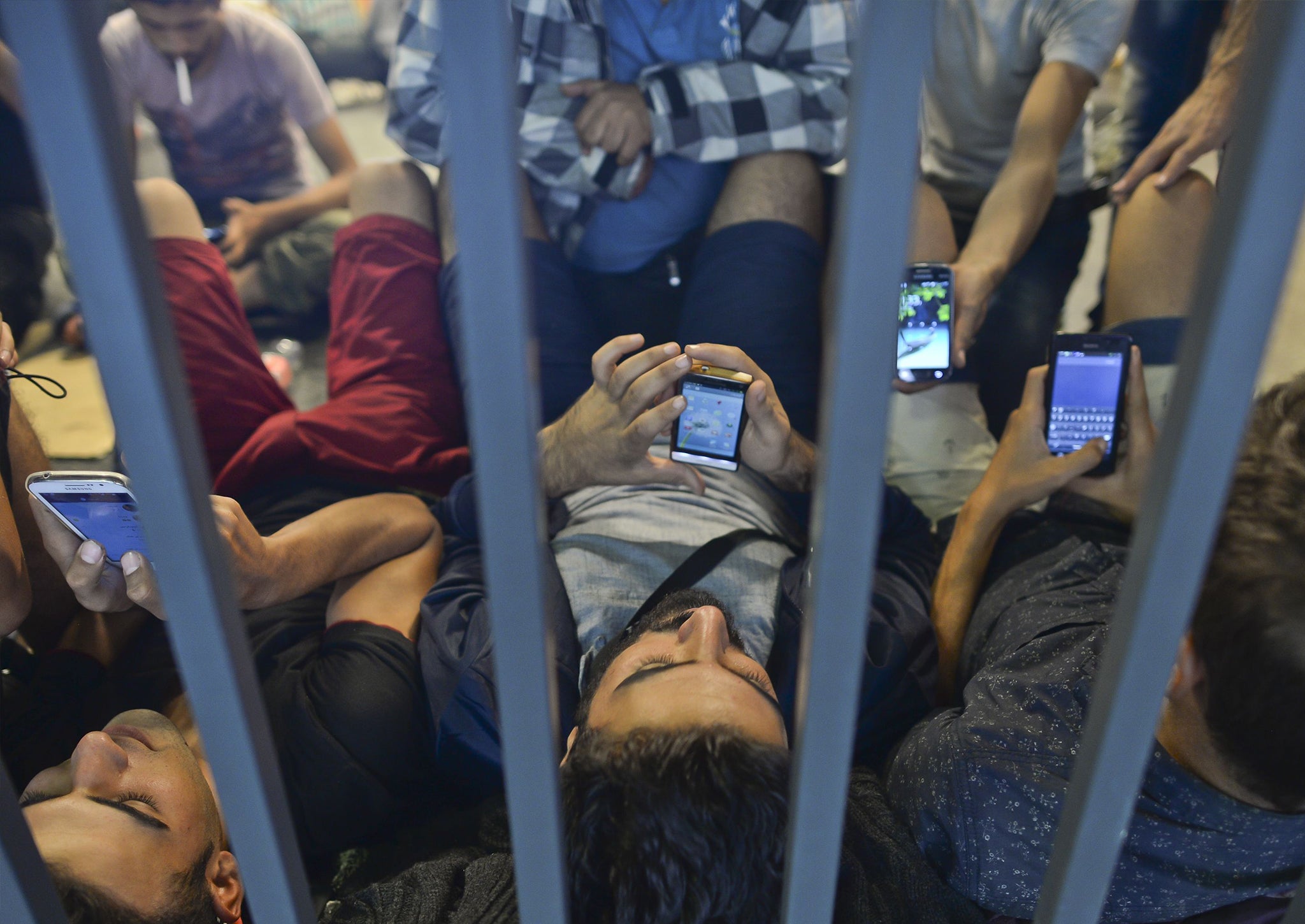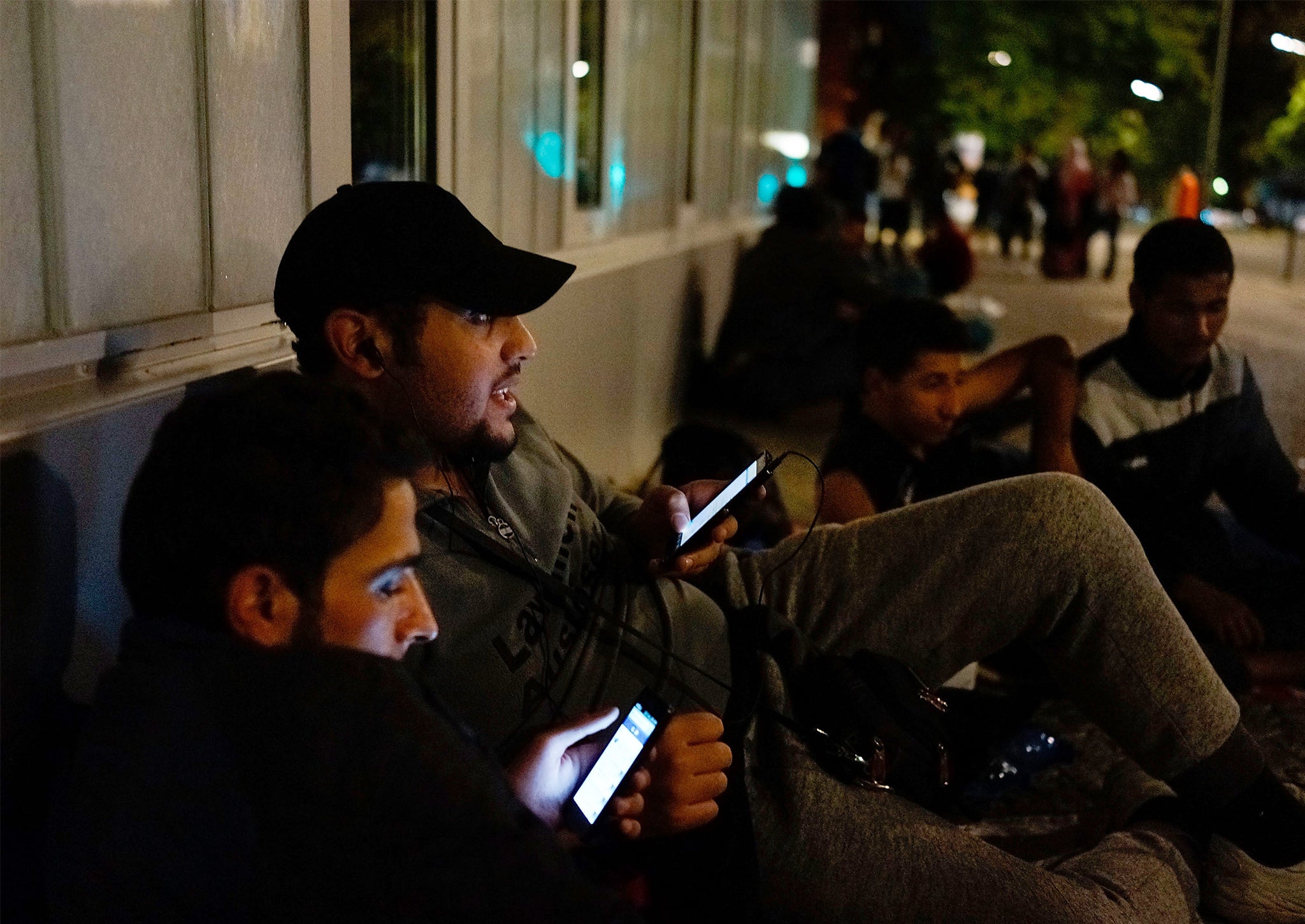Surprised that Syrian refugees have smartphones? Sorry to break this to you, but you're an idiot
You don't need to be a white westerner to own a relatively cheap piece of technology

“Hey, those people fleeing war in Syria aren’t poor at all! Look, they all have smartphones!” is one increasingly tedious complaint that has been bubbling away on social media recently. Owning a mobile phone, it seems, should render one ineligible for help when trying to stop themselves and their families from dying in a war.
On the surface this may look like xenophobia searching for something to grab on to following a shift in the public mood towards refugees from the Middle East. But it is actually a fairly progressive stance: just weeks ago the anti-immigration brigade were complaining that migrants are unskilled and just want our benefits. And now they’re arguing that migrants are too wealthy instead, implicitly arguing we should prioritise helping the poor. But in any case, it does raise an interesting question: Exactly how surprised should we be that people from Syria carry smartphones?
Syria is not a rich country, but it is not a poor country either: it ranks as a “lower middle income” according to the World Bank. In 2007 (the last year stats for both were available) Syria had a Gross National Income (GNI) per capita of $1850 which is more than Egypt at the time, which was only at $1620. Mobile phone penetration is similarly high in Syria as Egypt too. According to the CIA World Factbook in 2014 Syria had 87 mobile phones per 100 of the population, compared to Egypt’s 110 per 100 (the UK has 123 per 100 people).
In 2011 we saw Egyptians take the streets and using the power of their smartphones to mobilise support across apps and social media. Which raises another question: why can we accept that Egypt can have phones ubiquitous enough to ferment a revolution, yet act surprised when a wealthier country not too far away isn’t in a similar situation?

So we know that Syria isn’t dirt poor and we know that there’s a lot of mobile phones: but why smartphones? Well, why not? In the West many people own desktop computers, laptops and tablets as well as smartphones. But if you had to give up many of your possessions and live on $1850/year, after clothes and food, what would you buy next? It is hard to think of a more useful thing to own than a smartphone, especially if you're fleeing your home.
Even when utility isn’t considered, the reason Syrians are using smartphones and not old Nokia 3210s is the same reason that benefits claimants have (gasp!) “flatscreen” TVs… have you tried buying any other kind lately? Budget Android smartphones can be picked up for well under £100, and come with cameras, large screens and everything you would expect from a modern phone. As we’re now in the habit of replacing our phones with a new model every year or two the price of slightly older phones also drops significantly.
It's also possible to pick up the second generation iPhone - the iPhone 3G - for around £25, and despite being a few years old is still perfectly serviceable. There are more mobile phones than people in the world so chances are that anyone who can afford a phone (like millions of Syrians) already own one.
So the answer to how surprised should we be that many of the Syrian refugees have smartphones is a resounding “not very”. The world isn’t a binary split between “rich” and “poor” – and we should adjust our assumptions about the countries in the middle accordingly.


Join our commenting forum
Join thought-provoking conversations, follow other Independent readers and see their replies